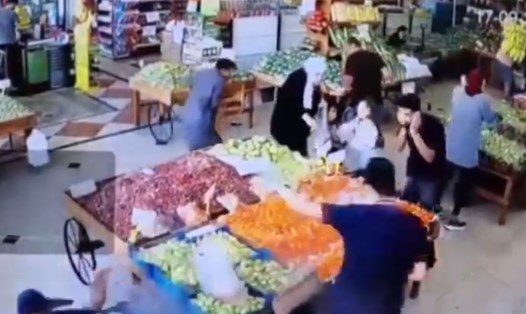Reuters reported on September 18 that Hezbollah announced that it would retaliate against Israel after accusing the country of being behind a series of pagers blasting across Lebanon on September 17. The incident killed nine people and injured at least 2,750 others, including Hezbollah fighters and the Iranian ambassador to Beirut.
Lebanese Information Minister Ziad Makary condemned the explosions as "an act of aggression from Israel". Hezbollah said Israel would be " punished appropriately" for the explosions.
However, the Israeli military has declined to comment on the incident, despite having continuously clashed with Iran-backed Hezbollah since the war in Gaza broke out in October 2023.
The death toll from the blast rose to nine on the night of September 17, while the number of injured remained at 2,750, according to a report from Lebanon's Health Ministry. In an earlier statement, Hezbollah confirmed that two of the group's fighters and a young girl were among the dead.
The blasts occurred in several areas controlled by Hezbollah, including southern Lebanon, the southern suburbs of Beirut (known as Dahiyeh) and the Bekaa valley in the east. An unnamed Hezbollah official said it was the "biggest security breach" for the group in nearly a year amid the conflict with Israel.
According to The New York Times, Israel planted explosives in Gold Apollo-branded pagers before importing them to Lebanon. The explosives were placed next to the battery with a switch that could be activated remotely.
The Hamas militant group - currently fighting Israel in Gaza - has called the pager explosions an "escalation" and said the move would only lead to "failure" for Israel.
UN special missionary to Lebanon Jeanine Hennis-Plasschaert condemned the attack, saying it marked an "extremely worrying escalation" in the conflict.
Meanwhile, the US government insists it was not involved in the explosions and does not know who was responsible. Washington has called for a diplomatic solution to tensions between Israel and Lebanon, and has advised Iran, and its allies such as Hezbollah, not to take advantage of the situation to increase instability in the region.
Although not directly commenting on the explosions in Lebanon, an Israeli military spokesman said that Chief of Staff, Major General Herzi Halevi met with senior officers on the evening of September 17 to assess the situation. No policy changes have been announced, but the spokesperson stressed that "cautiety must be maintained continuously".









